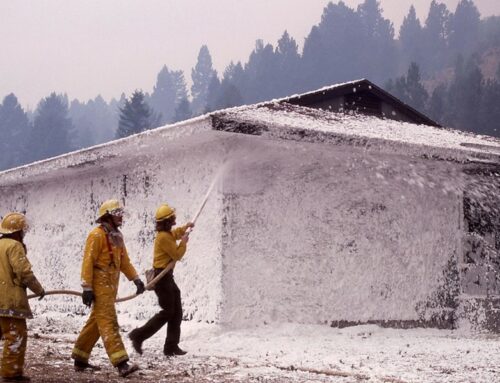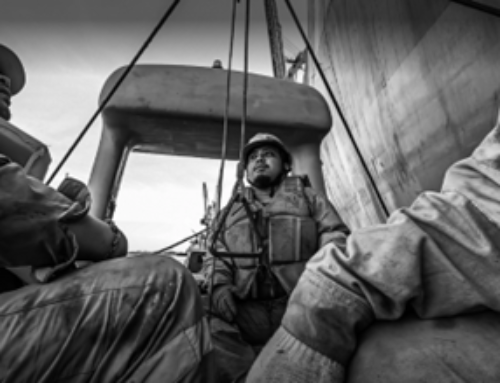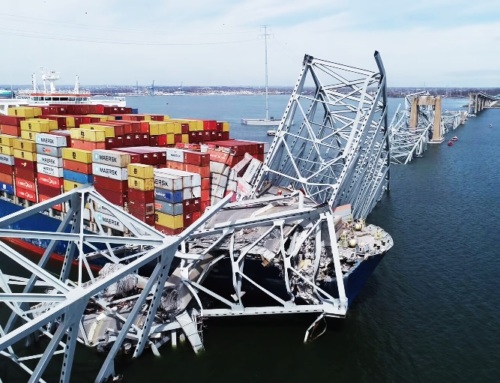OFFSHORE WIND FARMS—COMING TO TEXAS?

Unique aerial of the Offshore-Windpark (OWP) five kilometers off the coast of Copenhagen, Denmark. Converted from RAW.
President Joe Biden has announced a national goal of producing thousands of megawatts of offshore wind energy within the next few years.
In keeping with that priority, the U.S. Bureau of Ocean Energy Management, the federal agency that oversees offshore oil, gas and wind permitting, last week began preparing a draft environmental assessment for wind production, which will cover a 30 million-acre area, stretching along the entire coast of Texas, as well as eastward from the Texas-Louisiana border to the Mississippi River. The assessment will consider how the construction and operation of offshore wind turbines affects fisheries, marine mammals, birds and other elements of the marine environment.
The Biden administration hopes to open the Gulf of Mexico to wind lease sales by 2025, a step that will align with broader plans to produce at least 30,000 megawatts of offshore wind energy by 2030. The Gulf of Mexico has the potential to generate more than 500,000 megawatts of offshore wind energy per year, according to the National Renewable Energy Laboratory. If that goal is met, it would equal twice the current energy needs of all five Gulf states; it also would be larger than the currently-predicted offshore wind capacity of both the Pacific Coast and the Great Lakes, combined.
The Biden administration and wind energy advocates say offshore wind development will help combat climate change and increase the number of good-paying jobs, especially in areas like south Louisiana and Texas, where employment in the oil and gas industry has been fading. “The Gulf of Mexico is well-positioned to support a transition to a renewable energy future, as much of the infrastructure already exists to support offshore wind development in the region,” BOEM Director Amanda Lefton said. “BOEM’s environmental assessment is an important step to ensure that any development in the region is done responsibly and in a way that avoids, reduces, or mitigates potential impacts to the ocean and to ocean users.”
Several Texas and Louisiana companies which previously serviced the offshore oil industry now are shifting focus to the several offshore wind projects taking shape on the East Coast. Meanwhile, energy companies from Singapore, Germany and Portugal, along with large oil companies such as Shell who already are active in the Gulf, recently began to show interest in building wind turbines off the Texas and Louisiana coastline.
BOEM held the first of several planned virtual workshops with the Gulf’s commercial and recreational fishing interests last month. However, Gulf shrimpers and some environmental groups have expressed concerns that turbines and other offshore wind infrastructure, including transmission cables and substations, will crowd an area already laden with oil and gas infrastructure, including many abandoned pipelines and platforms, and create more hazards in an already busy area. While shrimpers worried that wind farms will overlap prime harvesting areas, recreational fishing groups wanted assurances they could get as close as possible to the turbines, which can act as artificial reefs and make fishing easier.
BOEM plans to narrow its assessment area based on input from wind energy developers, fishers and other groups. Many of these stakeholders comprise the Gulf of Mexico Intergovernmental Renewable Energy Task Force, which first met in June and plans to meet again sometime early this year.
Information about BOEM’s environmental assessment and instructions on how to comment are available at boem.gov/renewable-energy/state-activities/gulf-mexico-activities.
We at the Herd Law Firm applaud the Biden Administration’s goal of exploring wind energy. We note that the Gulf of Mexico has been he site of our nation’s offshore energy development for decades. We also welcome the opportunity of good-paying jobs in installation and operation of these offshore wind energy facilities, which will employ many maritime workers. We do caution, however, that these wind farms need to be constructed and operated safely, to ensure that these workers, and our own clients, are not hurt or killed in the process of developing non-carbon energy.
CFH







